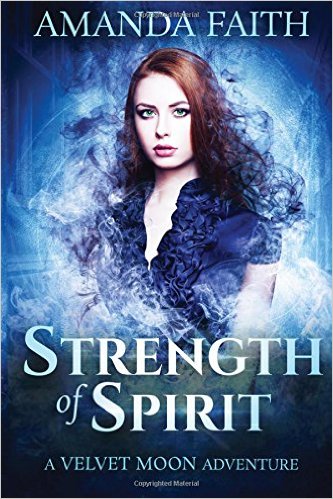 A guest post by Amanda Faith.
A guest post by Amanda Faith.
I love a good mystery. Being the detective, following the clues, and arriving at the logical conclusion to catch the bad guy has always held such fascination to me. Sherlock Holmes, Jane Marple, Inspector Clouseau, Nancy Drew…these are but just a few of my childhood sleuths that I followed. I couldn’t get enough.
One of the largest draws for me was the fact that I could become part of the story. If the author did their job right, I had to work along side the detective to uncover the clues. It made me work. No, strike that. It would make me want to work.
There are some key elements in a great mystery that should be followed:
- A detective that engages the reader. No one wants to be bored reading nor should the detective be a twit.
- A solvable puzzle.
- A well-done setting
- Interesting characters. More than likely, there are several in the book.
Reading mysteries, I discovered that a great mystery has more than one mystery in it. Yes, it contains the “big question.” However, a great mystery also contains several smaller ones to keep the reader engaged, to bring more tension, more problem-solving opportunities, and more ways to introduce red herrings. It also brings depth to the main character (and sometimes the villain). Solving a crime is never neat and pretty. There are twists and turns, wrong assumptions, and initial wrong answers that help the reader stay intrigued. Sometimes it’s good in seeking the truth by showing a lie to propel the story forward.
A mystery must have stakes. There has to be an important, life-changing reason that the unanswered question needs to be answered. The question has to have meaning and weight or there would be no reason to pursue the answer. The greater the problem, the more the tension can grow.
Creating a good mystery can be challenging. There are a few things to keep in mind while writing.
- Start with the ending. I have discovered that if you know what the crime, who was involved, and how the bad guy gets caught is important. It will make it easier to create the story to make sure you get to the end game.
- A lot of exposition will kill a good mystery. Sure, sometimes it’s necessary. There has to be some exposition to move the story along. However, a good mystery engages the reader. They are part of the story. They are part of the crew to catch the bad guy. If a writer feeds them all the information, a reader will just toss the book aside, bored and hurt you didn’t let them be a part of the takedown.
- Do not be unrealistic with the conclusion. The clues, although challenging, cannot be so difficult that a reader cannot solve the case. You don’t want clues to be easy, either. No one reads to the middle of a book and stops. You need to take it all the way home. The reader should be able to go back and trace how things happened to discover how the detective came to the right answer at the end.
- Don’t make the conclusion stupid. I say this will all kindness, but things like the assistant figuring it out for the detective, there was an unknown twin, or arbitrarily have a key piece of information appear out of thin air. You can’t hide information. There has to be a hint of a clue somewhere prior to the time the detective unveils it.
- Introduce the criminal soon, and the detective sooner. Let the reader know within the first third of the book who the bad guy is so they feel they have enough time to solve the case.
Someone once told me that building a mystery is like the game Jenga (I wish I could remember who). Reach in, grab a block, and pull. Does the story stand? Did you watch it fall apart? This is where the edits come in. You will find all kinds of holes in your story during editing if your Jenga falls down before you get to the end.
I have discovered my love for mysteries has taking me to read about all kinds of mysteries, including real ones. Take the Egyptian Pyrimads, the ruins of Chichen Itza and Puma Punku, or the Lost City of Atlantis. How about the real cases of Jack the Ripper? Amelia Earheart? All of these real-life areas hold a sense of mystery for me. I find that I become lost in the clues and read about what researchers discover.
There are a lot of wonderful authors that transport the reader down a road to uncover the clues and catch the bad guy. Maybe the mystery can be the reader discovering their next great book to help them escape…if only for a little while.
 Teaching high school English by day, college English by night, writing, and doing paranormal investigations doesn’t slow her down from having a great time with a plethora of hobbies. Her published credits include short stories, poetry, several journal articles, her doctoral dissertation, and her award-winning book Strength of Spirit. She is a staff writer for The Daily Dragon at Dragon Con and an intern for Kevin J. Anderson and Rebecca Moesta at WordFire Press. She has a Bachelor of Arts in English, a Masters in Education-English, and a Doctorate in Education-Teacher Leadership. Check out her website at www.amandafaith.net.
Teaching high school English by day, college English by night, writing, and doing paranormal investigations doesn’t slow her down from having a great time with a plethora of hobbies. Her published credits include short stories, poetry, several journal articles, her doctoral dissertation, and her award-winning book Strength of Spirit. She is a staff writer for The Daily Dragon at Dragon Con and an intern for Kevin J. Anderson and Rebecca Moesta at WordFire Press. She has a Bachelor of Arts in English, a Masters in Education-English, and a Doctorate in Education-Teacher Leadership. Check out her website at www.amandafaith.net.

Pingback: I am on The Fictorians Today! – Author Amanda Faith